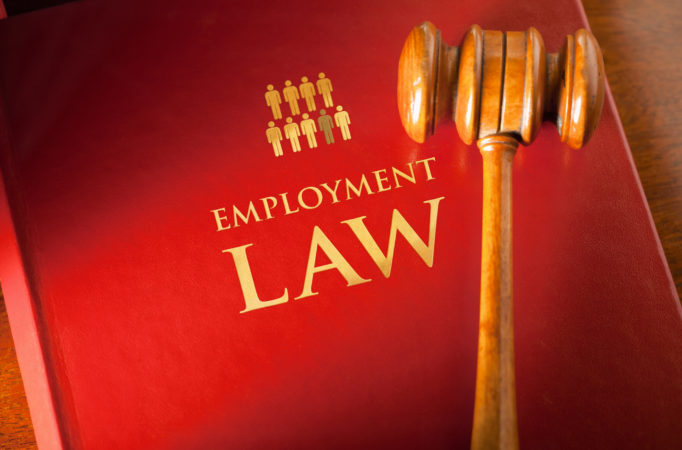Employment & Labor Law
Do Owners Count As Employees? SBA Issues Additional Guidance on Definition of “Owner-Employees” For PPP Borrowers
On Monday (August 24) the SBA issued another Interim Final Rule (the “8/24 Rule”) under the Paycheck Protection Program (PPP). This Rule in part provides further insights on the definition of “Owner-Employee” under the PPP. The interpretation changes the current assumptions that many PPP borrowers had in regard to such definition and may result in changes in their forgiveness applications. This Alert elaborates on the new rule and its implications and the takeaways for PPP borrowers and their advisors.
Owner-Employees and the 8/24 Rule
The SBA has imposed caps and other limitations on the payroll expenditures (salary, state and local taxes, employer healthcare and pension contributions) eligible for loan forgiveness applicable to “owner-employees” of PPP borrowers. The SBA has defined “owner-employees” in its past rules as employees of PPP “borrowers” who are also “owners”. However, the SBA has not previously explicitly stated what level of ownership is required to constitute an “owner” for this purpose.
PPP borrowers and their advisors have widely assumed that the definition that the SBA provided for “owners” in the instructions on its PPP loan application applies to owner-employees. The loan application states in part that “All parties listed below are considered owners of the applicant as defined in 13 CFR 120.10 (i.e. the 7(a) loan program which the PPP is a part of): for a sole proprietorship, the sole proprietor; for a partnership . . . partners owning 20% or more of the equity; for a corporation, all owners of 20% or more of the corporation; for limited liability companies, all members owning 20% or more of the company.” In other words, all sole proprietors are “owners” and for other entities (corporations, LLC’s partnerships), an “owner” is in individual who holds 20% or more of the entity’s equity interest. Many advisors have assumed, based on this language, that to be an “owner-employee”, an employee must own 20% or more of the borrower.
The SBA’s 8/24 rule provides otherwise. It includes the following Q & A:
Question: “Are any individuals with an ownership stake in a PPP borrower exempt from application of the PPP owner-employee compensation rule when determining the amount of their compensation that is eligible for loan forgiveness?” Answer: “Yes, owner-employees with less than a 5 percent ownership stake in a C- or S-Corporation are not subject to the owner-employee compensation rule.”
The 8/24 Rule thus clarifies that the ownership threshold required for an individual to constitute an “owner” is 5 percent for C- and S-corporations.
The SBA goes on to state that prior to its 8/24 Rule, its position was that any individual who had held any interest in a borrower was deemed to be an “owner”: “There is no exception in the rule based on the owner-employee’s percentage ownership”. The SBA does not acknowledge the view of many prior to the 8/24 rule that the threshold had been 20%.
The SBA explains its rationale for the 5% threshold: “This exception is intended to cover owner-employees who have no meaningful ability to influence decisions over how loan proceeds are allocated.” The SBA’s view is that individuals who hold 5% or more of an entity have sufficient ability to control the entity that the caps applicable to owner-employees on payroll expenditures should apply.
Takeaways
Does This Apply to Your Employees? PPP borrowers that are C- or S- corporations be aware that if any of your employees hold more than 5% of the equity (shares or membership interests), they are subject to the owner-employee caps. The threshold is not 20% as many had previously thought.
General Partners. For PPP borrowers that are general partners, the 8/24 Rule does not address what level of interest constitutes an “owner”. Presumably, all general partners who are employees are “owner-employees”.
Implications of “Owner-Employee” Status. The provisions unique to owner-employees are addressed in prior rules. They include in part:
Caps Based on 2019 Levels. For all owner-employees, they are capped in their compensation eligible for forgiveness based on 2019 levels of cash compensation (or net profit or net earnings in the case of schedule C filers or general partners); For C-corporations and S-Corporations, employer pension contributions eligible for forgiveness are limited based on the prorated amounts of 2019 employer pension contributions.
$20,833 Compensation Cap (for Borrowers With 24-Week Covered Periods). For borrowers that have a 24-week covered period their payroll compensation is limited to $20,833 which is 2.5 months of compensation (2.5 months/12 months times $100,000 = $20,833). Whereas for employees who are not owner-employees, the cap is $46,154, which is 24 weeks of compensation (24 /52 times $100,000 =$46,154)
Caps Apply Across Multiple Businesses. For any owner who also owns (under the SBA’s definition of “owner”) another entity which is a PPP loan borrower, the total compensation paid to that employee eligible for forgiveness is $20,833 ($15,385 if the borrower elects an 8-week covered period).
Do Non-Voting Equity Interests Count? The 8/24 Rule states that any individual with a 5% or more “ownership stake” is an “owner”. “Ownership stake” indicates that any ownership interest is considered under the 5% test, whether or not it is a voting interest. However, the SBA’s rationale for the rule suggests that it is concerned only with owners that can control the borrower—i.e. with voting rights. The safer approach is to include all interests in the 5% test, voting and non-voting, pending definitive guidance from the SBA to the contrary.
Houston Harbaugh attorneys are available to help with this and other business issues as you proceed through the pandemic. Contact the attorney with whom you regularly deal or the below author of this article: Harrison S. Lauer, Houston Harbaugh, lauerhs@hh-law.com; (412) 288-2229.
About Us
Claims and suits brought against employers by employees are a large part of the cases being handled by the Employment lawyers at Houston Harbaugh. We focus on assisting and counseling our clients to be positioned to avoid claims, and if the claims are brought, to be prepared to defend against them.

Craig M. Brooks - Practice Chair
An employment and labor attorney, Craig primarily represents management, providing advice on how to handle employee issues and actions, as well as defending or pursuing claims in court and before government agencies on matters.
An employment and labor attorney, Craig primarily represents management, providing advice on how to handle employee issues and actions, as well as defending or pursuing claims in court and before government agencies on matters including:
- Employment discrimination claims
- Wage and hour matters
- Sexual and other harassment investigations and claims
- Family and Medical Leave Act
- Wrongful discharge
- Labor/Union matters
- Restrictive covenants
- Affirmative action programs
- Defamation
- Privacy
Craig also represents individuals with advice and pursuing claims arising out of their employment.

